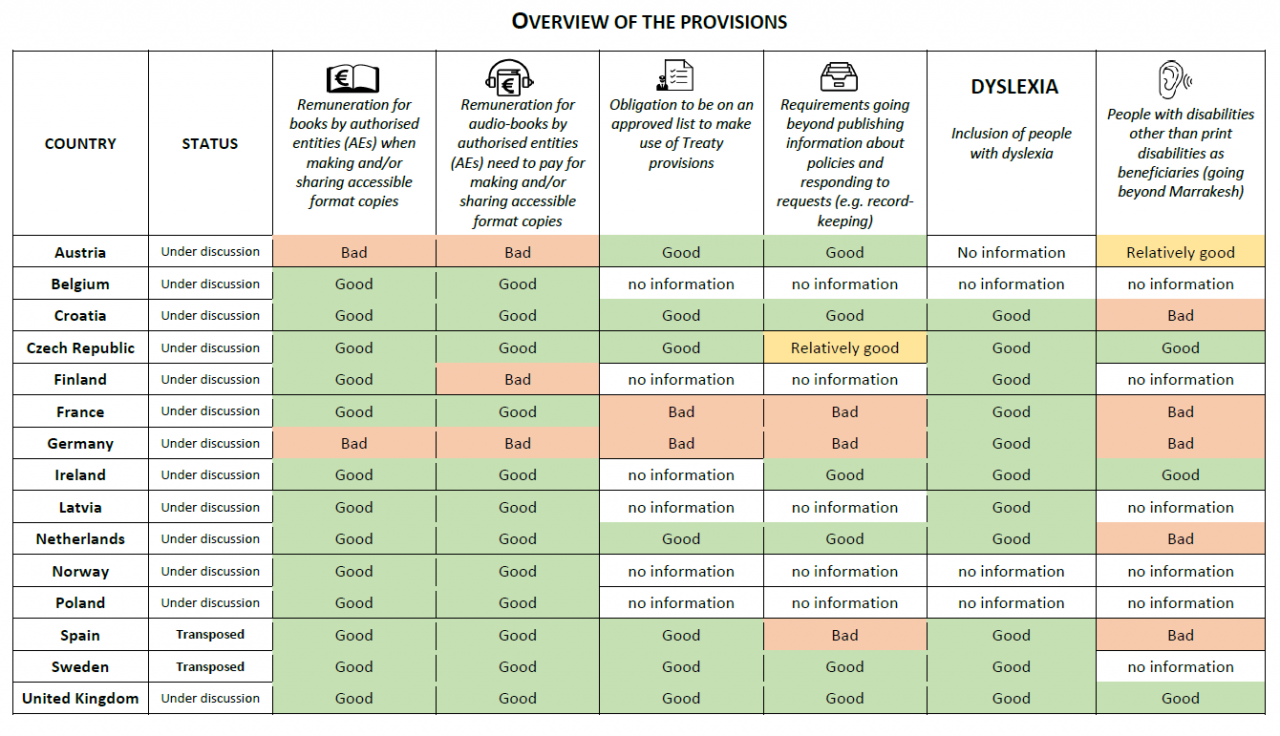On Track or Off the Rails? IFLA publishes an update current status of transposition of the Marrakesh Directive in Europe
14 June 2018
As States which have signed the UN Convention on the Rights of Persons with Disabilities meet in New York, IFLA is today publishing an update on what EU governments are doing to make the Marrakesh Treaty a reality in Europe.
The Marrakesh Treaty, signed in 2013, removes unnecessary barriers to the creation and sharing of books in formats that are accessible to people with print disabilities. Previously, copyright rules often forced libraries and users to seek permission or pay fees, and made cross-border exchanges of works almost impossible.
The European Union passed key legislation – Directive 2017/1564 and Regulation 2017/1563 – in September 2017, with a deadline for Member States to update their own laws of 11 October 2018. Ratification in Europe will mean that 28 more countries are covered by the Marrakesh Treaty, opening up access to collections in major world languages to people in other countries which have ratified.
Less than four months from this date, IFLA’s research shows where things stand in most Member States. We look in particular at whether Member States are trying to make libraries pay for the copying and sharing of physical and audiobooks, whether they face additional obligations, and whether people with dyslexia and other disabilities can benefit.
Overall, we see that relatively few states are taking up the possibility to provide for compensation payments. This is good news, given both the financial and bureaucratic burden this can represent.
However, more are demanding that libraries register as ‘authorised entities’, despite this being illegal under the Treaty, or demanding that they provide more paperwork than necessary. Moreover, not enough are taking advantage of reform to ensure that all people with disabilities benefit from Marrakesh provisions.
IFLA will continue to monitor national legislation over the coming months. We welcome questions.
You can read the full report in a word document (also in large print) and in a pdf.
See also our guide on Marrakesh transposition in Europe, our pages on the Marrakesh Treaty, and keep up to date with the latest on what IFLA is doing on copyright issues.